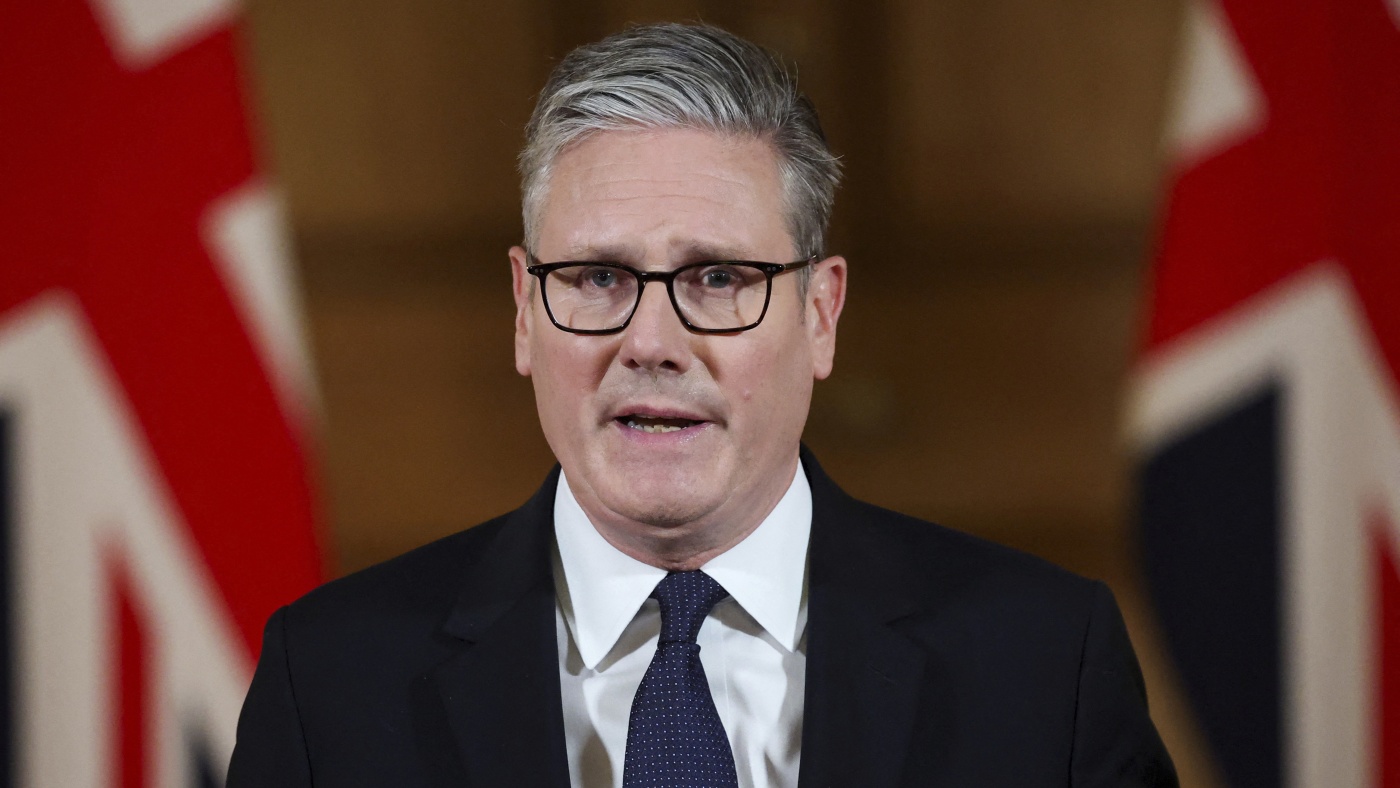European Pressure for Palestinian Statehood

Introduction
Recently, there have been increasing discussions and pressure from European countries regarding the recognition of Palestinian statehood. France has announced its intention to recognize Palestine as a state, and the United Kingdom has also threatened to do the same unless Israel changes its course.
Key Details
This move by France and the UK is a clear message to President Trump and his administration, who have been vocal supporters of Israel. The European countries believe that recognizing Palestine as a state will put pressure on Israel to make necessary changes and move towards a peaceful resolution with Palestine. This also highlights the growing divide between the US and its European allies on the issue of Israel and Palestine.
Impact
This push from European countries has put President Trump in a difficult position, as it goes against his administration's strong support for Israel. It also adds to the ongoing tensions between the US and its European allies, as the US has been pushing for a more aggressive stance against Iran, while European countries have been trying to maintain the Iran nuclear deal. This further highlights the differences in foreign policy between the US and its European allies.
About the Organizations Mentioned
France
France is a leading global economic and political entity rather than a conventional organization. It is a semi-presidential republic with Paris as its capital and largest economic and cultural center[2]. Economically, France ranks as the world’s ninth-largest economy by purchasing power parity and the second largest in the EU, maintaining a diversified and robust industrial and service sector. It is a major manufacturing hub in Europe, the third largest after Germany and Italy, and a top agricultural producer within the EU[2]. Historically, France has been a major player in international affairs as a founding member of the European Union, OECD, G7, and G20, reflecting its enduring influence in both global governance and economic policy[2]. Its economy features significant government involvement and a social market structure that balances free market capitalism with social welfare policies[2]. France also ranks highly on innovation indexes, placing 12th globally in 2024, reflecting strong investments in education, research, and technology[2][5]. Key achievements include substantial progress toward environmental sustainability. Since 1990, France has reduced its greenhouse gas emissions by 35%, aligning with the Paris Agreement goals. It leads in ecological protection, notably in its vast maritime zones and overseas territories[1]. The country is actively transforming its economy by promoting renewable energy, electrification of transport, and sustainable food consumption to meet ambitious climate targets by 2030 and carbon neutrality by 2050[1]. Currently, France’s economy is experiencing moderate growth, with a projected GDP increase around 0.7-0.8% in 2025 amid fiscal adjustments and global uncertainties. Private investment is subdued but expected to recover by 2026, driven by easing monetary policy and stronger domestic demand[3][4][6]. The government is focused on reforms to stimulate digital innovation, simplify regulations, and enhance investment, especially in innovative small and medium enterprises[6]. Notable aspects include France’s highly educated workforce, world-class universities, and strong research institution
United Kingdom
The **United Kingdom (UK)** is a sovereign island country located off the northwestern coast of mainland Europe, comprising England, Scotland, Wales (all on the island of Great Britain), and Northern Ireland on the island of Ireland. London, its capital, is a global commercial, financial, and cultural hub[2]. The UK is the world's sixth-largest economy, with a 2024 GDP growth of 0.8%, driven mainly by services, including professional, scientific, and technical activities[1]. Historically, the UK evolved from a collection of kingdoms into a unified state with a constitutional monarchy, currently led by King Charles III and Prime Minister Keir Starmer (Labour government as of 2025)[5]. Its legacy includes a vast empire and foundational contributions to law, democracy, science, and technology. Today, it remains a major center for innovation, finance, and technology, with London being a critical global financial center. Key achievements include its robust service sector growth, particularly in professional and technical industries, despite declines in traditional sectors like mining[1]. The UK has also made significant strides in scientific research, technology development, and cultural influence worldwide. However, challenges persist, including supply chain issues post-Brexit, inflation-driven cost-of-living crises, and political controversies such as immigration policies and social welfare reforms[3][6]. In 2025, the UK faces ongoing economic and social challenges, including poverty and inequality, complicated further by political dissatisfaction with recent government measures like the withdrawal of winter fuel payments for many pensioners[3][6]. Despite this, it remains a stable democracy with regular free elections and a vibrant media landscape[7]. The UK’s population is approximately 69.7 million in 2025, with diverse urban centers like Birmingham, Manchester, Edinburgh, Glasgow, and Cardiff contributing to its economic and cultural dynamism[2][9]. The government is focused on addressing socio-economic disparities while maintaining its role as a leading global economic and












